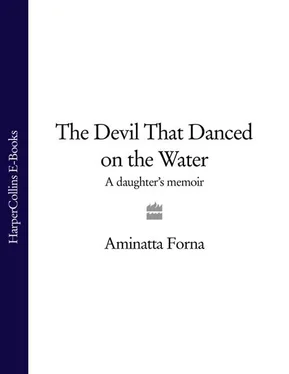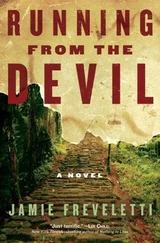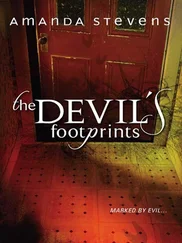1 ...7 8 9 11 12 13 ...27 He joined the British Labour Party and began to attend student meetings regularly. Even among his peers he had a reputation as a firebrand. One evening Bernard Frazer, who took a more languid view, challenged Mohamed. If he thought all the politicians back home were doing such a poor job, why didn’t he run the country himself? I will, replied his friend, rising to the provocation, if I have to.
In 1960 a series of meetings began to be held in London to agree a new fully independent constitution for Sierra Leone. As a representative of one of the student unions, my father was invited to meet the Sierra Leonean delegates. They gathered in the tense and heady atmosphere of Lancaster House to weave a constitutional framework for the future.
‘Uncle Sam’ was a one-time church minister in Freetown who arrived in Britain in the 1930s to train as a doctor. He flunked and switched to law; flunked that too. With the last of his savings he managed to buy a four-storey house in Paddington and he set about restoring it in a haphazard manner. In the meantime he lived quite well renting out rooms to a tidal population of students. Uncle Sam’s house was where most young men from Sierra Leone who were short of cash but wanted to see the big city ended up staying.
What Sam made on the house he regularly lost on the horses and at those times he would go round the house emptying gas and electricity meters of shillings, and shrug soulfully at the bitter complaints of his young tenants.
Some years back Sam won the love of Dora Fossey, an English hospital matron who lived several doors down and regularly bailed him out of his financial straits. Dora and Sam never dared to marry or even to go out in public more than once in a while. Instead, when her shift at St Mary’s ended Dora spent every evening at Sam’s, watching television and cooking him English meals. Anyone who knew no better would imagine they had been married for years, but their relationship was conducted entirely within the narrow world of the crumbling West London terrace.
One afternoon Mohamed came back to Uncle Sam’s to find one of his many cousins standing in the kitchen. Brima Sesay, nephew of Chief Masamunta, was a nursing student making a tour of the country. Neither could believe the luck of the coincidence and they crossed the floor to embrace. Afterwards Brima took Mohamed to Shepherd’s Bush market, where they bought slippery okra, palm oil, tiny stinging scarlet peppers and blackened, smoked grouper. That night they stayed in with Uncle Sam and feasted on rice and plassas. They hadn’t seen each other since they used to play on the Fornas’ farm during the school holidays. They had lost touch when my father was eleven, at which point one of his teachers had asked the family permission to take him away to the south as a ward in order to complete his education. Soon afterwards Brima had been adopted into a group of missionaries who brought him to England.
Brima called my father Moses, explaining to a mystified Dora how the mission teachers went round the class on the first day of school changing the names of the children for their own convenience. Around the same time my father chose his birthday: November, which coincided with tarokans. The date, the 25th, he decided on himself. A name the bureaucrats could spell and a date of birth: these were the first essentials on the path to westernisation. My father dropped Moses the day he left the primary school; but Brima used both his names: Alfred Brima.
Days later my father caught the train from King’s Cross back north and Brima went on to Birmingham. When Alfred Brima was back at college in Portsmouth, a letter arrived. It was from Mohamed and contained bad news. ‘Remember Maureen, the girl I told you about?’ Mohamed wrote. ‘A terrible thing has happened. She is pregnant.’
Mohamed wanted advice from his cousin, someone who knew the family. He had thoughts of marriage but worried about Maureen’s father who, he supposed, would detest this solution as much as any other. His greatest fear was that Mr Christison would report him to the university authorities and try to have his scholarship revoked. Then there was the matter of the Fornas. He remembered the Conteh cousins who returned from Britain, one after the other, each with a white wife, and the indignation and upset that the women managed to provoke within the family.
Brima didn’t hesitate. Marry her, he said. The older members of the family aren’t going to live for ever. But, he warned, you must make sure the family never have reason to resent her. And if you take her from her own country, to a place where she is a stranger, you will have to be utterly loyal to her, too.
Maureen and Mohamed married at the register office in Union Street on 28 March 1961. She was nineteen years old and he was twenty-five. Charlie Renner acted as a witness and Dan Sama was my father’s best man. Dan’s Scottish girlfriend had given birth the month before, but she had disappeared back to her family and given the child up. She dropped her classes; no one had laid eyes on her since. Bernard Frazer came along and proposed several toasts in the Union building after the ceremony.
On her wedding day my mother, dressed in a pale-blue suit, left Gairn Terrace with a packed suitcase in her hand. She didn’t tell her parents she was getting married, though she found out many years later that they already knew because someone had seen the banns up on the board in town. But within the house no one spoke of it.
One month later, in April, the British flag was lowered in Sierra Leone and replaced by the green, white and blue tricolour. My father organised a sherry party in the beautiful stone British Council building in the harbour at Aberdeen. At the end of the evening, flamboyantly drunk, he staggered away under the weight of several crates, declaring there was far too much sherry to leave behind. On the top floor of the bus he lit six cigarettes and smoked them all, three in each hand. Someone teased that he wasn’t even a smoker. ‘I’m smoking the smoke of freedom, man.’ He blew out great gusts of smoke. ‘I’m smoking the smoke of freedom.’
At the end of the evening my mother, pregnant and sober, pushed him up the stairs while he leaned back so far he was almost horizontal. Then she put him to bed with a bucket by his side.
My mother was one of the only white people in Koidu. The only other one I ever saw was her boss at the Volkswagen franchise, Franz Stein from Bischofstauberville in Germany. One day, soon after we arrived to live in the town, my mother appeared in his showroom to buy her first car, a sky-blue Beetle. Franz Stein was just about to lose the bank manager’s wife, who did the accounts for him, and so he asked my mother if she wanted a job. Our clinic had barely opened and we could do with the money, so she agreed.
In the mornings, after we dropped Sheka and Memuna at school at the Catholic Mission, my mother left me at home in the care of my cousin and namesake Big Aminatta while she worked at the garage calculating the repair bills. The mechanics told her how many men had worked on a car and for how long. Then she added up the cost of the parts and computed the tax; when the bills were paid she totted the figures up exactly in a big accounts book.
In addition to Volkswagens the showroom also sold Porsches – at least in theory. The same car was on display the entire time we lived in Koidu. Every day people came inside to look at it, but no one ever wanted to buy it. There was barely a few inches’ clearance beneath the low-slung undercarriage, little use in a town which could not boast a single tarmacked road. But Franz Stein said he kept it there, buffed and polished and looking about as improbable as a pair of stilettos on a nomad, because it attracted so many people into the showroom.
Читать дальше












